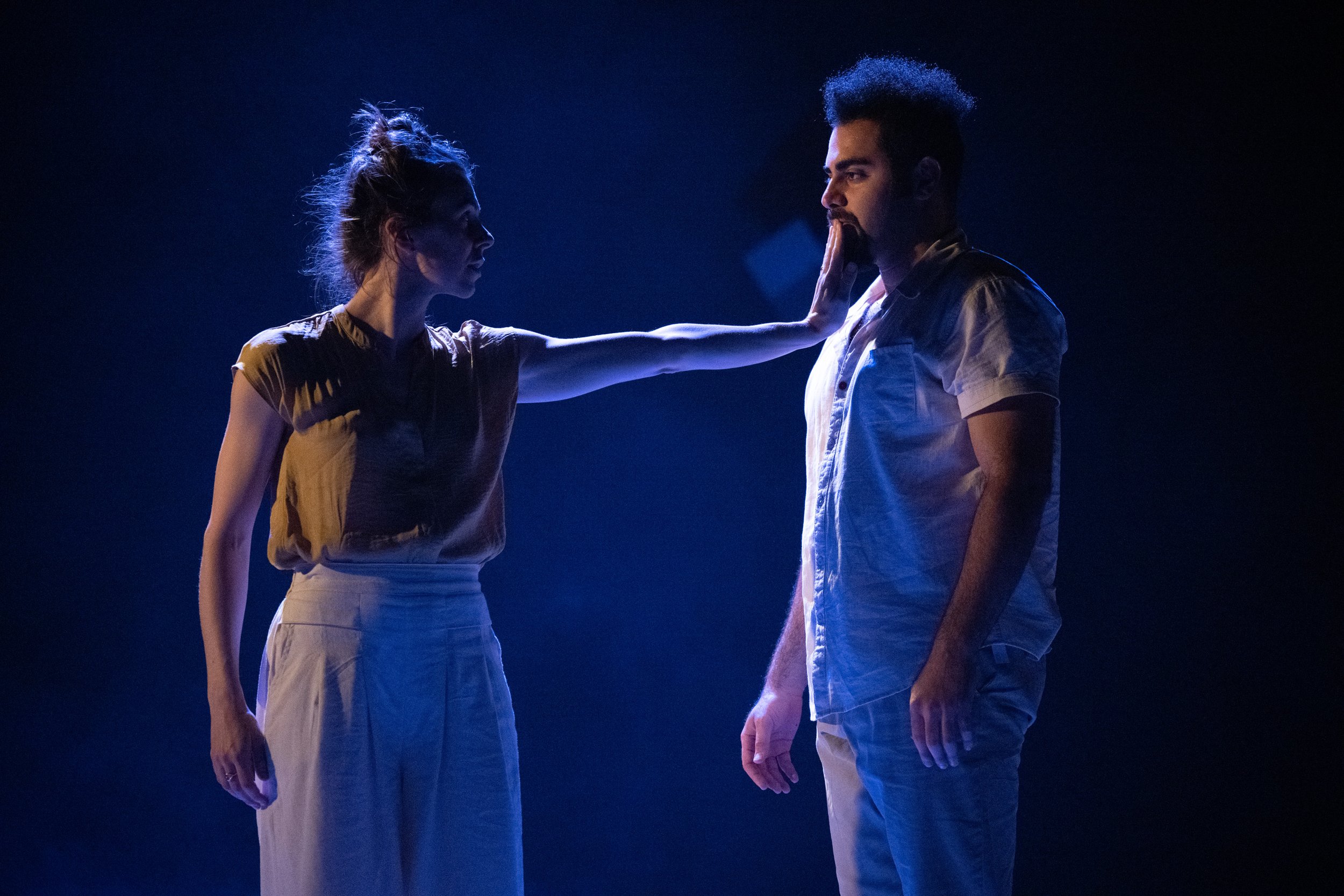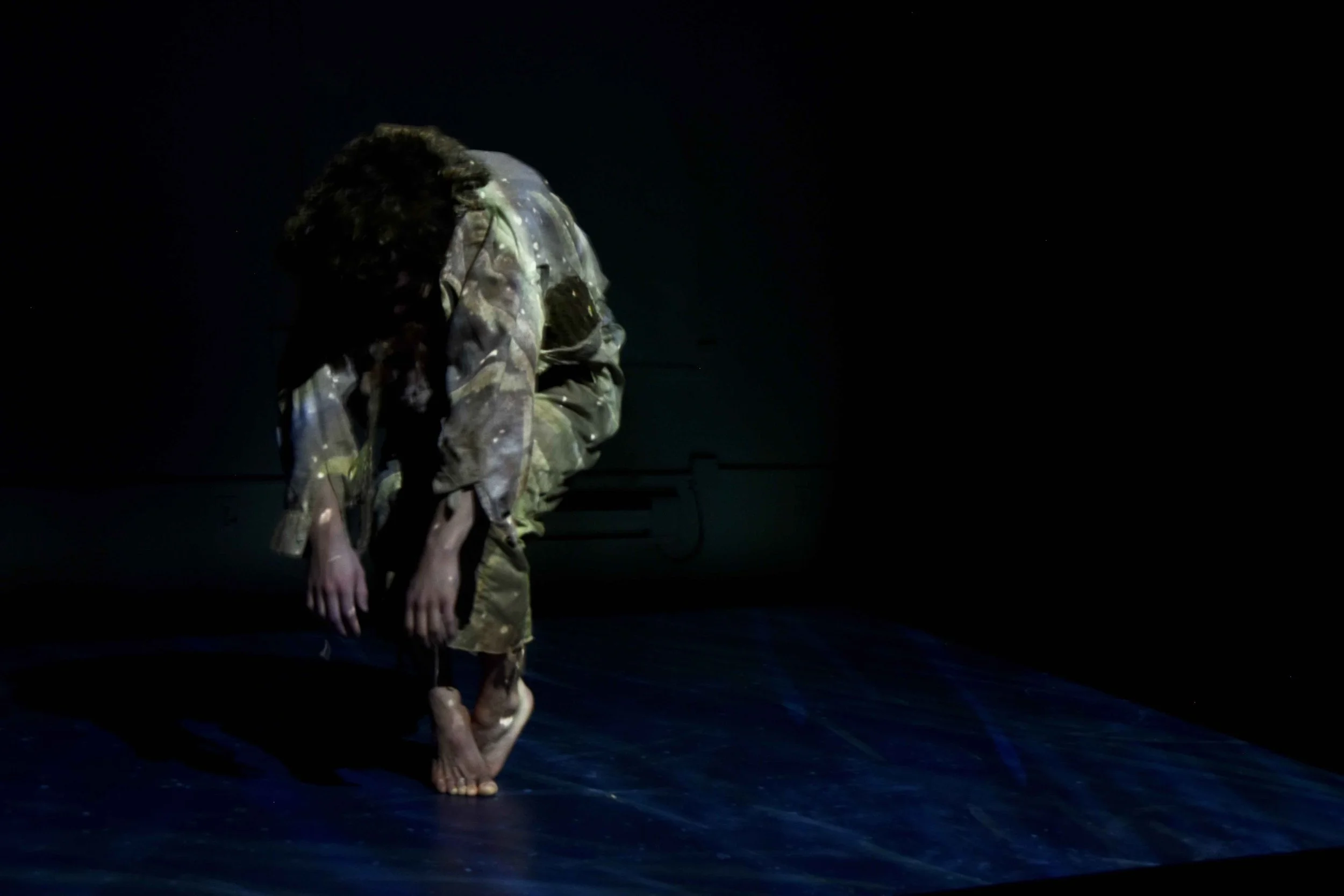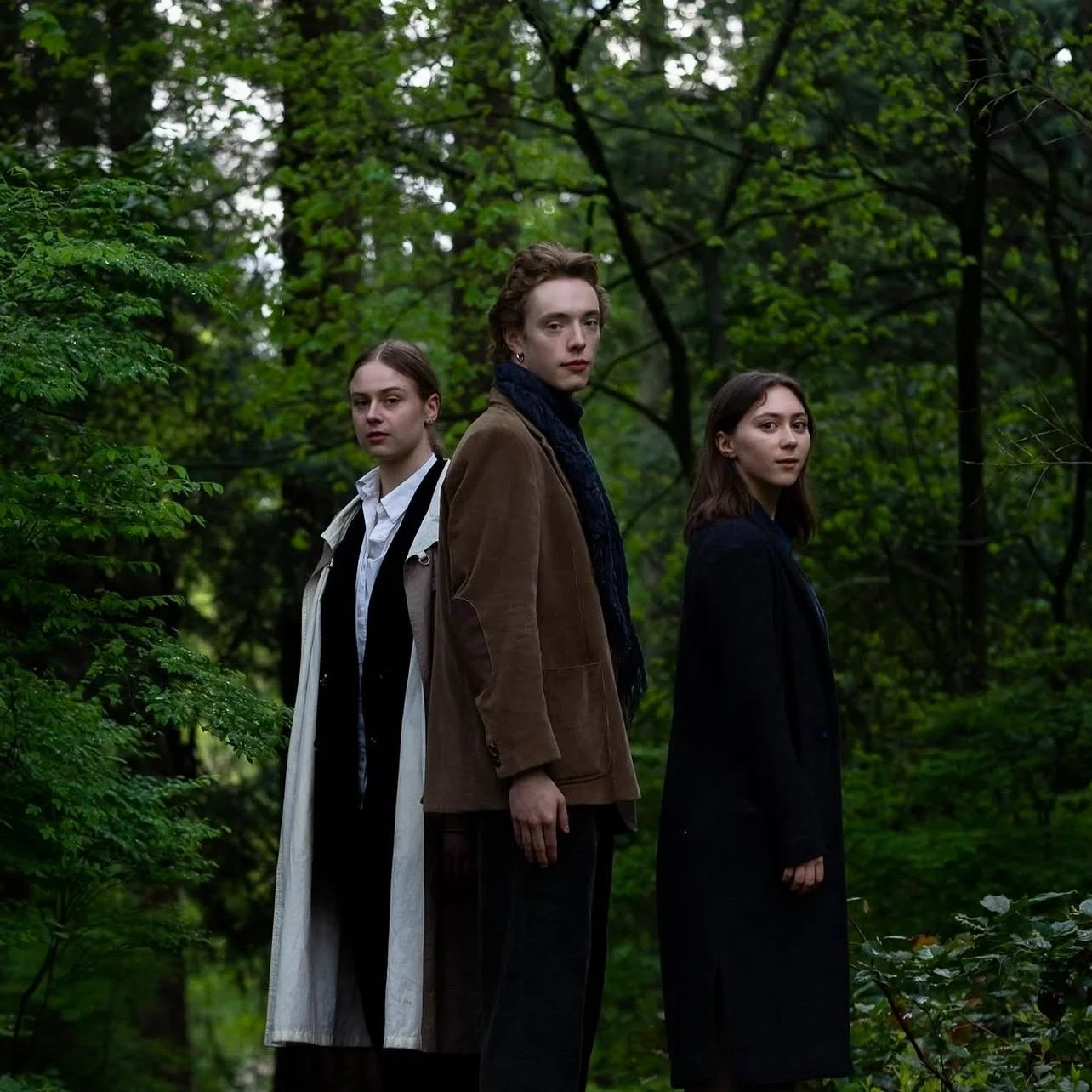Alexis Fletcher and Arash Khakpour find an intimate new dance language at the Chutzpah! Festival
Inspired by Persian poet Forugh Farrokhzad, their All my being is a dark verse resonates amid women’s calls for freedom in Iran
Alexis Fletcher and Arash Khakpour team up for the first time in All my being is a dark verse. Photo by David Cooper
The Chutzpah! Festival presents All my being is a dark verse on November 9 and 10 at the Norman and Annette Rothstein Theatre, and online from November 10
THE WORDS OF REVERED, late Persian poet Forugh Farrokhzad are more prominent than usual these days, amid protests in Iran and abroad. They adorn protest artworks, Instagram posts, and placards—inspiring those taking to the streets to demand freedom in response to the September death of a woman arrested for breaking hijab laws.
Born in 1935, and killed tragically in a car accident in 1967, Farrokhzad refused to conform, articulating taboo female desires and emotions, her poems filled with physical intimacy, sorrow, longing, and protest. “What is important is humanity,” she once said, “not being a man or a woman.”
A year-and-a-half ago, Vancouver contemporary dancers Alexis Fletcher and Arash Khakpour were already connecting and creating around Farrokhzad’s poetry. The resulting work—deeply intimate and staged in a slightly dreamlike way—debuts at the Chutzpah! Festival this week. Called All my being is a dark verse, it’s named after one of the lines in the writer’s poetry. And its creators are struck by how unexpectedly timely the premiere is.
“It’s been hard; it’s sort of paralyzing,” reflects Khakpour of what has been going on in the streets and prisons of the home country he left at 14 to move here with his family. “I feel like it's really hard to do anything, but I try to allow this process to be a way of healing, and processing all that’s going on in Iran. I think it helps the process of grieving for sure. It’s not separate from the studio and from dance—this is still part of my life.”
The project began when Ballet BC alumna and independent dance artist Fletcher first discovered Farrokhzad’s poetry through an artwork by Nargess Jalali Delia (whose pieces will show in the lobby of the theatre during the run, and who has become an advisor on translations and cultural context for the project). The piece featured a line from “Inaugurating the Garden”, and when Fletcher tracked down the poem, it immediately spoke to her.
Encouraged by her partner in life and work, Sylvain Senez, she approached Khakpour—an artist she knew but had never collaborated with before—about creating a piece inspired by the poetry. In a pleasant surprise, she found Khakpour to be a fan of Farrokhzad. In an interview at the Scotiabank Dance Centre, he recalls first discovering a book of her poetry, at 10 or 11, in his brother’s collection; reading it in Farsi, he made an instant connection. “I thought, ‘You can say these things? You can do these things?’ …It really opened up a whole landscape for me,” he says. “She’s a huge icon; everyone is sort of standing on her shoulders. We have many, many great poets and artists who are female.”
Fletcher and Khakpour come from different backgrounds in dance (ballet and contact improvisation, respectively) and they had to develop a mutual language in the studio—one that has cross-cultural layers, as well.
All my being is a dark verse. Photo by David Cooper.
“Literally, we've gotten to know each other via the making of this piece,” says Fletcher. “So we spent a huge amount of time improvising together; in our first couple of phases we would do hourlong improvisations that were fairly open. We were just sort of marinating in the poetry. He would read to me in Farsi, I would read to him in English—we had the poems spread all over the floor in both languages! We would let them be in the space and in our bodies, without trying to hold on to specific words or phrases.”
“Instead of saying, ‘Hey, we should make a section about this poem,’ it was staying away from relying on it or making it concrete,” Khakpour adds. “We were asking, How is it changing us? Or we would say, ‘What are you getting emotional about?’ In short we allowed the poems to become digested in our bodies so they can be in our consciousness.”
What’s striking watching rehearsal at the Scotiabank Dance Centre is the physical intimacy the pair has been able to develop over time (including residencies at Dance Victoria and at the Chutzpah Festival’s Norman and Annette Rothstein Theatre)—despite the fact they started the process as distant acquaintances. Before the curtain rises at the fest this week, the duo will have spent a half hour improvising onstage, fingers touching, faces brushing together, arms embracing, hands cradling faces, all in an attempt to deepen their connection before the show begins. The dancers talk about an “organic” and emotional connectedness they instantly felt working together. Both strove to make themselves vulnerable—an attribute that characterizes Farrokhzad’s writing.
Senez and lighting designer Victoria Bell have built an atmospheric world to surround the duet on stage—one that captures the slightly dreamlike and surreal feel of Farrokhzad’s poems. One of the most striking pieces is an upside-down “bouquet” of 14 vintage lamps, sourced from homes and second-hand stores around town by Senez, all dating back to the mid-century era of Farrokhzad’s most influential output. You’ll also see flying books and a symbolic pomegranate. Alex Mah’s electro-acoustic score adds to the hypnotic, otherworldly feel.
And so it is that visual art, literature, music, and dance interweave as much as the two cultures onstage—a connection that defies the division and conflict happening in the outside world.
“It sounds cheesy, but it feels like it was meant to be, as a way of opening up conversation,” Khakpour reflects.
“I’ve felt the presence of Forugh,” Fletcher adds. “She feels alive in the space with us.”














